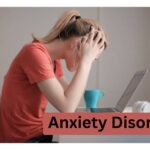Depression (Major Depressive Disorder) – Symptoms and Cause
A Depressed Man
In this Article; The Complexity of Depression Causes of Depression Common Symptoms of Depression Diagnosis and Seeking Help Treatment Options for Depression
Depression is a common and complicated mental health problem that affects millions of individuals worldwide. It can manifest in various forms and intensities, impacting individuals both mentally and physically.
In this article, we will delve into the multifaceted world of depression, exploring its causes, symptoms, and the wide array of treatment options available to those who are affected.
The Complexity of Depression
Depression is not a one-size-fits-all condition. It exists on a spectrum, ranging from mild and temporary episodes of sadness to severe and long-lasting emotional turmoil.
It is crucial to differentiate between occasional bouts of sadness, which are a normal part of life, and clinical depression, which is a medical condition that may require professional intervention.
Causes of Depression
- Biological Factors: One of the leading causes of depression is believed to be an imbalance of neurotransmitters in the brain.
- Imbalances in certain neurotransmitters, such as serotonin, dopamine, and norepinephrine, can contribute to mood disorders like depression.
- These biological factors can disrupt the brain’s ability to regulate emotions, leading to the development of depressive symptoms. It’s important to note that depression is typically influenced by a combination of biological, psychological, and environmental factors.
- Research suggests that individuals with a family history of depression may be more susceptible to developing the condition themselves, indicating a genetic component.
- Genetics: It can influence depression susceptibility through inherited genetic variations and predispositions. According to research, Individuals who have a family history of depression are more likely to acquire the disorder themselves.
- Environmental Stressors: Stressful life events, such as the loss of a loved one, job instability, or financial difficulties, can trigger depression in susceptible individuals.
- Chronic Illness: Some chronic medical conditions, such as chronic pain or a long-term illness, can contribute to the development of depression.
- Hormonal Changes: Hormonal fluctuations, particularly in women, can be associated with an increased risk of depression. This includes hormonal changes during pregnancy, postpartum, and menopause.
- Substance Abuse: Substance abuse and addiction are often intertwined with depression. The use of drugs or alcohol can exacerbate depressive symptoms or be a means of self-medication.
Common Symptoms of Depression
Recognizing the symptoms of depression is crucial for early intervention and treatment. These symptoms range in severity and may include:
- Persistent Sadness: This includes overwhelming and persistent feelings of sadness, hopelessness, or emptiness.
- Loss of Interest: It includes a noticeable loss of interest or delight in once-pleasant exercises.
- Fatigue and Low Energy: This includes an unexplained decrease in energy levels and constant fatigue, even after rest.
- Changes in Sleep Patterns: This includes insomnia or oversleeping, disrupted sleep, or frequent awakenings during the night.
- Changes in Appetite and Weight: This includes significant changes in appetite, leading to weight loss or gain.
- Concentrating: This includes an inability to concentrate, make decisions, or remember things.
- Feelings of Worthlessness: This includes an overwhelming sense of guilt or worthlessness, often accompanied by negative self-talk.
- Physical Symptoms: This includes unexplained physical symptoms, such as headaches or digestive problems, which do not respond to treatment.
- Irritability: This includes heightened irritability and restlessness, which may lead to conflicts with others.
- Suicidal Thoughts: This includes people suffering from depression who may have suicidal thoughts under extreme conditions.
It’s important to note that not everyone with depression will experience all of these symptoms, and the severity of symptoms can vary greatly between individuals.
Diagnosis and Seeking Help
You must get professional treatment If you or someone you know is experiencing signs of depression. A mental health assessment by a qualified healthcare provider is the first step in diagnosis.
They will consider the duration and severity of symptoms, as well as ruling out other medical conditions that may mimic depression.
Treatment Options for Depression
Depression is a treatable condition, and there are various approaches to managing and alleviating its symptoms.
The choice of treatment depends on the individual’s specific situation and the severity of their depression. Here are some common treatment options:
- Psychotherapy (Talk Therapy): Psychotherapy, including cognitive-behavioral therapy (CBT), interpersonal therapy (IPT), and psychodynamic therapy, can help individuals address the root causes of their depression, develop coping strategies, and improve their emotional well-being.
- Medication: Antidepressant medications, such as selective serotonin reuptake inhibitors (SSRIs) and serotonin-norepinephrine reuptake inhibitors (SNRIs), are often prescribed to help regulate neurotransmitter levels in the brain. Medication is usually recommended for moderate to severe depression or when psychotherapy alone is not sufficient.
- Lifestyle Changes: Simple lifestyle adjustments can have a significant impact on depression. Regular exercise, a balanced diet, adequate sleep, and stress reduction techniques like mindfulness and meditation can help improve mood.
- Support Groups: Joining a support group or seeking support from friends and family can provide emotional assistance and reduce feelings of isolation.
- Electroconvulsive Therapy (ECT): In severe cases of depression that do not respond to other treatments, ECT may be considered. It involves controlled electrical stimulation of the brain to induce a brief seizure, which can lead to improvements in mood.
- Transcranial Magnetic Stimulation (TMS): TMS is a non-invasive therapy that employs magnetic fields to stimulate particular parts of the brain. It is used in situations of treatment-resistant depression.
- Ketamine Treatment: Ketamine, once primarily used as an anesthetic, has shown promise in rapidly alleviating symptoms of severe depression in some individuals when administered in a controlled medical setting.
Depression is a widespread and complex mental health condition that affects people from all walks of life. Understanding its causes, recognizing its symptoms, and seeking timely treatment are crucial steps in managing and recovering from depression.
With the right support and treatment, individuals can regain their emotional well-being and lead fulfilling lives. If you or someone you care about is suffering from depression, keep in mind that treatment is accessible and that recovery is possible.
Don’t hesitate to reach out to a healthcare professional for guidance and support on your journey to wellness.





